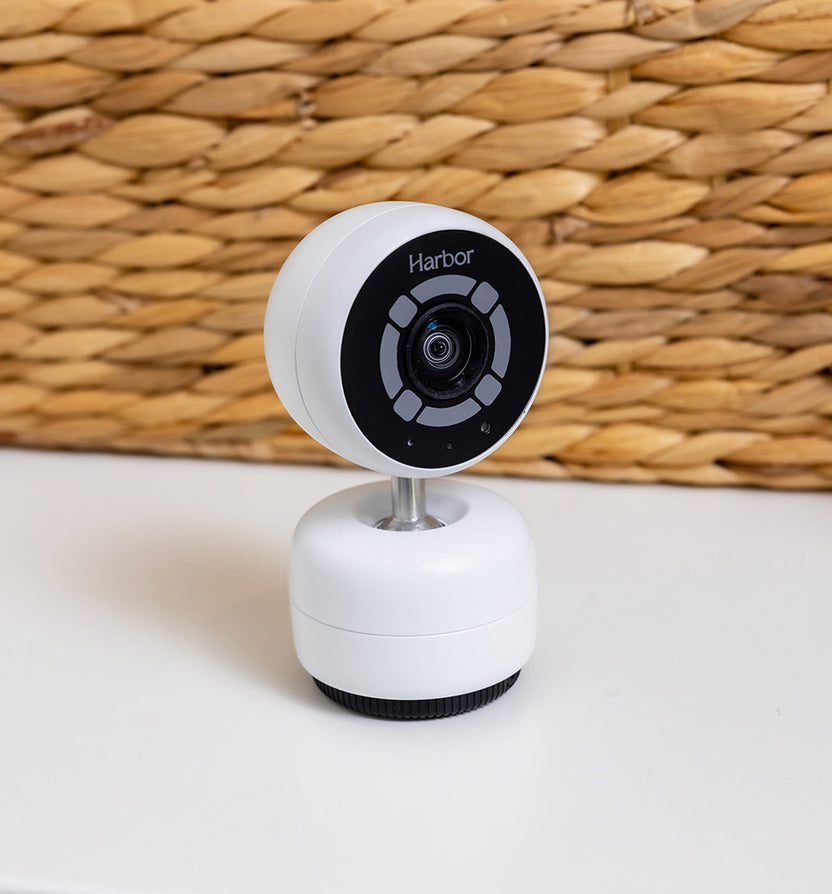
Uninterrupted sleep phases are critical for the health and well-being of every parent.
We often think of good sleep as getting in enough hours. The Centers for Disease Control and Prevention recommends at least seven hours for most adults. This amount can be challenging to achieve, especially as a parent with an infant.
However, good sleep is about more than just time logged on your pillow. The quality of those hours also matters as much as the quantity. Good quality and quantity sleep are fundamental for mental health, cognitive health, metabolic health, and even your parental functioning.
Research from 2012, in the peer-reviewed American Journal of Epidemiology, shows that parents with children under age 2 are significantly more likely to experience daytime sleepiness and nodding off during daily activities. To reach their findings, the researchers analyzed data for 833 parents in the Wisconsin Sleep Cohort Study.
Though not a peer-reviewed study, a frequently cited survey conducted by Snüz, a UK company, found that 70% of the 1,300 parents polled lost, on average, at least 3 hours of sleep per night in their baby’s first year. That’s the equivalent of 133 nights of missed slumber.
Parents can even face sleep deprivation for up to six years postpartum, a 2019 study shows. The study, published in the peer-reviewed journal Sleep, analyzed the sleep of more than 2,000 women and 2,000 men in Germany who reported the birth of their first, second, or third child to reach this conclusion.
In a 2023 study, also published in Sleep, researchers looked at parental sleep quality for more than 230 couples during pregnancy and at four-month intervals up to one year postpartum. The research showed that about three-quarters of mothers and half of fathers showed subclinical insomnia at different points throughout the study.
Clearly, parenting can make getting optimal sleep tough, but here’s why quantity and quality of sleep matter and how to have fewer interruptions to your slumber.
What are sleep cycles?
Each night, we go through several sleep cycles. Each sleep cycle is roughly 90 to 110 minutes and involves four different phases before the next cycle begins or you naturally wake up. Adults need four to six sleep cycles per night and relatively uninterrupted phases within those cycles to benefit health.
To find out how many sleep cycles you need, determine how many hours of sleep help you feel your best: seven, eight, or nine.
- seven hours: 4 cycles
- eight hours: 5 cycles
- nine hours: 6 cycles
Remember that, as a parent, you may face some interruptions you can’t avoid that shorten your sleep and interrupt in-process cycles along with how many cycles you complete. Adding a buffer by going to bed even earlier than needed may help.
What are sleep phases, and why do they matter?
Each sleep cycle is made up of four phases. Three phases involve non-rapid eye movement (NREM) sleep, each at different levels of deepness. One phase is rapid eye movement (REM) sleep. Each phase has its purpose and health benefits.
NREM 1
When you first nod off, you’re in NREM 1. You’re not quite asleep, yet you’re not awake. You might also experience muscle twitches or that feeling of falling that jolts you awake. These episodes are called hypnic jerks. Essentially, your brain and body are easing into sleep. NREM 1 lasts from one to five minutes and accounts for about 5% of your total slumber.
NREM 2
This phase, although not the deepest level of sleep, is deeper than NREM 1. Your body temperature cools, and your heart rate slows. Your brain works on neuroplasticity, the growth and reorganization of its neural network. You’ll also experience sleep spindles, when neurons have bursts of firing.
Researchers theorize that sleep spindles are crucial for memory consolidation related to procedural and declarative memory. If you started learning a new skill or task during the day or gained practice in something, NREM 2 is when your brain helps log the new knowledge in your long-term procedural memory. NREM2 will eventually be important for your child to learn shoe tying, for example. But it’s equally important for adults, whether learning yoga poses or how to use a piece of work software that’s new to you.
Declarative memory information also gets consolidated during NREM2. Declarative memory is concerned with remembering information, such as the content of a work presentation or the route to drive to your child’s pediatrician.
In your first sleep cycle, you’ll spend about 25 minutes in NREM 2. As the night progresses, you’ll spend increasing time in this phase, which accounts for about 45% of your total sleep time.
NREM 3
This phase is your deepest level of sleep, where your heart rate and breath rate have slowed the most. When you’re in this phase, waking you will be more difficult when compared to any other phase. And if you must awaken from this phase, you might feel foggy for up to an hour.
NREM 3 also aids memory. NREM 3 helps replay what you learned during the day and commit it to your long-term memory. It’s also a time when your brain helps make room for new content for the next day. Think of it almost like a closet reorganization, clearing out the clutter and saving your best stuff.
NREM 3 is crucial for the body to repair itself. If you’ve done a weights workout during the day, for example, your body will use NREM 3 time to repair and build muscle. This phase also supports the immune system, keeping you healthy for parenting.
In your first sleep cycle, you’ll spend about 50 minutes in NREM 3, but time in this phase decreases with each subsequent cycle. This phase accounts for 15% to 20% of your total sleep.
REM
REM gets its name because your eyes are rapidly moving. This phase is when you dream. You also lack muscle tone and are temporarily paralyzed, which is likely to prevent you from acting out your dream experience. REM is also important for stabilizing memory. Therefore, a lack of REM sleep could hinder you from being able to nail complex tasks.
REM helps provide a buffer from that deeper sleep phase of NREM 3 before waking or starting a new sleep cycle. Your first REM phase will be relatively short, about 10 minutes. But as you get closer to waking, you’ll be spending about an hour in REM sleep to prepare you for the day ahead.
As you can see, sleep phases change in duration with each cycle. Short-changing yourself with sleep overall potentially reduces not only your quantity but also the quality you’re getting, which decreases the benefits you experience with each phase and cycle. Ultimately, the entire night of sleep matters for your health and well-being.
Sleep interruptions harm health
Interruptions in your sleep cycles and phases could mean you’re spending more time in the lightest phase of sleep, NREM 1. This can have profound effects on your physical and mental health, which can then impact your parenting.
Poor sleep quality and quantity is associated with all-cause mortality, coronary heart disease, stroke, and type 2 diabetes.
One area of study gaining a lot of traction is how sleep affects metabolic health, which can inform overall health. Good sleep helps us manage the way our body processes blood sugar from the foods we eat and helps us with hormone signaling.
When we get poor sleep, the opposite is true, making us more insulin resistant the next day. Even just one night of poor sleep can make us more insulin resistant. Over time, insulin resistance can lead to prediabetes, type 2 diabetes, obesity, and cardiovascular disease. Insulin resistance can also drive food cravings. Exacerbating the issue is that sleep loss also reduces levels of the hormone leptin, which tells our brains we’re full. At the same time, it increases levels of ghrelin, which is the hormone that tells us we’re hungry. Sleep deprivation also increases adiponectin levels. Higher adiponectin levels are associated with obesity. Poor quality or quantity sleep makes it harder to make good choices when it comes to nutrition and exercise too, which then impacts sleep further. It’s a vicious cycle.
Cognitive and mental health matters too. When we have poor sleep, we are less able to focus and can be less productive, impacting our jobs and ability to perform everyday tasks. Plus, poor sleep is linked to aggression, anxiety, depression, and more. Less sleep also impacts levels of the stress hormone cortisol, potentially leaving us feeling the acute effects of stress throughout the next day. Perhaps most frightening of all is the increased likelihood of microsleeps, or moments where you drift off temporarily, which can happen even while driving.
Sleep interruptions can impact parenting
Research shows that sleep disturbances in parents can ratchet up stress. For this reason, studies also show that poor sleep quantity and quality can lead to dysfunctional parenting.
Dysfunctional parenting is an umbrella term that encompasses negative behaviors from aggression and outsized reactions to neglect and abuse. Most parents are not setting out to traumatize their kids, but it can happen nonetheless with volatile reactivity, such as excessive shouting or yelling. No parent is perfect, but dysfunctional parenting can lead to trauma responses for children, which can then cause health issues for them in adulthood. When we are stressed and exhausted, it is nearly impossible to be the parent we want to be or that our kids deserve.
While we all face difficulties or adversity at one time or another, and our kids are no exception, trauma can alter stress response and emotional regulation in children, which can lead to chronic stress as they get older and issues with metabolic, heart, and mental health.
Good quality sleep isn’t the only solution to preventing dysfunctional parenting, but it’s a foundation of helping to facilitate a calmer, less-reactive household.
How to ensure optimal quality and quantity sleep
You don’t have to aim for perfection when it comes to sleep and parenting; that would be impossible. But implementing strategies that help you experience fewer sleep interruptions and getting more sleep overall can have benefits for your overall health and your child’s.
Knowing the negatives of poor sleep isn’t of much benefit unless you also know what solutions are available. Check out our 11 tips for navigating sleep deprivation as a new parent. Solutions will vary depending on each family’s needs. Here are a few of the most critical.
Establish your nighttime routine. Prep your body for sleep by setting boundaries around screens. Turn them off or put them away an hour before bedtime. While you’re getting ready for bed or reading, dim the lights in your room. Or swap out regular bulbs for amber ones if you don’t have a dimmer. Then darken your room as much as possible for sleep. Blackout curtains can be a big help in blocking out city lights.
Avoid stimulants and stimulating activities. Eat an early dinner, skip caffeine after noon, and avoid alcohol, especially too close to bedtime. Also, schedule your workout before 7 p.m. Exercise is great for sleep, but it can keep you up if done too late in the day.
Share the responsibilities. If you’re in a dual-parent household, split nighttime feedings with your partner. Breastfeeding moms can try pumping, or you can supplement with formula.
Ask for help. Reach out to friends or family for a respite when you need it.
At Harbor we developed something truly extraordinary: a Remote Night Nanny. This service, available in late 2024, involves having a vetted and trained professional monitor your child via the Harbor Camera and Monitor. The Remote Night Nanny offers peace of mind to parents so they can sleep, knowing they’ll be alerted, via a failsafe notification, if needed.
However, even just having a better monitor—one that doesn’t require internet or apps, both of which can crash, and with smart audio capabilities—can help you get more quality sleep.




